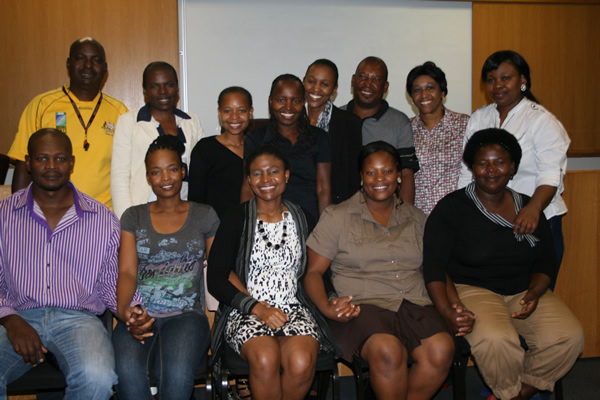The Gender Unit in collaboration with Irish Aid recently hosted a report back session on Gender Mainstreaming; a follow up session to training offered to Irish Aid partners and some University of Pretoria staff on 17 - 21 September 2012 at the University of Pretoria. An important element of the Gender Mainstreaming session held last year was the development of projects which were to be implemented at the different organisations represented at the training session. This was done under the mentorship of Elize Delport and Karen Stefiszyn of the Gender Unit who took time to develop projects specific to the participants’ interest and also relevant within their organisations. The session on 14 and 15 March 2013 was designed to report back on the interventions carried out, as well as the highlights and challenges noted during the implementation of their projects.
The session highlighted the resistance to gender equality based on a false perception of what it entails, the task before them was therefore very daunting. However the training clarified the concepts and made it easier to advocate for the mainstreaming of gender in their own organizations by highlighting the benefits to all. This sharing was done along three main themes of awareness raising and capacity building, policy development and, analysis and monitoring. The projects ranged from gender audits, to the implementation of grass-root projects designed to directly benefit impoverished communities. The projects were designed to be sustainable and participants noted that even after the conclusion of the session the projects continued to be implemented in their organizations and formed a part of a new organizational culture. This was a certificate course that tested the participants’ ability to take the information gathered during the training and convert it into tangible results that are directly beneficial and responsive to the gender needs in their organizations.
It is envisioned that from this session a compilation document will be published, to serve as a guide for those who plan to mainstream gender in their respective organisations. We continue to develop and improve the course in response to the trends highlighted by participants and in that respect continue to contribute to the mainstreaming of gender as an important element in the drive towards gender equality.
